Best Way to Improve Reading Comprehension Lsat
How many of united states of america, I wonder, in our first twelvemonth of teaching came across that small-scale child who was ever reading, always carrying big thick books and invariably introduced as a 'book worm'? And how many of the states speedily figured out that while they were reading, they were not understanding? Nosotros all know that reading comprehension is crucial for success in school and, aslope the academic furnishings, poor comprehension tin as well take a social and emotional impact. Some children have first-class word decoding skills simply a number of factors may interfere with deriving significant from written material. Nosotros asked leading academics, Professor Christine Merrell from Durham University, Dr Paula J Clarke from the Academy of Leeds and Dr Claudine Bowyer-Crane from the University of York for their communication. And so, what should we read if nosotros desire to find out more near the process of learning to read and tackling specific difficulties of reading comprehension? '[…] reading is much more a unmarried skill: it involves the coordination of a range of abilities, strategies and knowledge.' Kate Cain provides a valuable and scholarly introduction to reading development and focuses on the core aspects of give-and-take reading skills and reading comprehension, every bit well as providing a detailed examination of the specific problems that underlie reading difficulties. Cain explores specific reading difficulties in children with developmental dyslexia and children with poor reading comprehension, as well as looking at reading assessment for educational, research and diagnostic purposes. 'A rich vocabulary supports learning most the world, encountering new ideas, enjoying the beauty of linguistic communication.' This highly recommended volume is relevant to all teachers from nursery upwards and non but restricted to young children. It provides research-based and practical strategies for vocabulary development with children from the earliest grades and into the later on years. Information technology is an accessible combination of theory and practice, besides as providing summaries of current research. 'Learning to read transforms lives. Reading is the basis for the acquisition of knowledge, for cultural engagement, for republic, and for success in the workplace.' Bridging the gap betwixt research and practice, this commodity sets out a plan to terminate the 'reading wars,' the debate well-nigh how best to teach children to read which has divided, teachers, parents and politicians for decades. Information technology recommends a balanced calendar for instruction and research in reading conquering that is based on a deep agreement of how linguistic communication and writing systems piece of work. It aims to fill the gap betwixt the land of research knowledge about learning to read and the state of public understanding. '[…] narrative is fundamental to human development. Reading, therefore, is nearly much more than than gaining a skill: it is most learning to exist.' Great for primary practitioners. Recommended by Professor Christine Merrell (and found to be valuable in her evolution of the InCAS assessment), this scholarly text focuses on the procedure of learning to read and while it is suitable for literacy researchers, it is also written with teachers in heed. 'Learning to read is a matter of learning to crevice a code.' Bully for trainee and experienced teachers. A really useful and applied handbook, this text focuses on the different skills which contribute to successful reading comprehension. Information technology offers like shooting fish in a barrel to follow explanations of the research and looks at areas such as word reading and comprehension, development of comprehension skills, comprehension difficulties, assessment and teaching for comeback. 'Reading = decoding x comprehension' This is a very accessible and detailed guide to the educational activity of reading comprehension, suitable for trainee and experienced primary teachers. Information technology provides an assay of educational and psychological research, as well equally offer practical classroom strategies and ideas for lessons. 'Many of our students could definitely utilize a "reading vitamin boost" to give them the energy, stamina, and power to assail whatever text they encounter!' In this fully revised and expanded third edition of the bestselling Reciprocal Teaching at Work, Lori D. Oczkus provides both tried-and-true and fresh solutions for teaching reading comprehension. Extremely useful for primal stage 2, but also practiced throughout the main stages and into key phase iii. Oczkus provides a comprehensive and real-world resources for teachers, total of lessons, mini-lessons and strategies to improve reading comprehension that incorporates four main strategies—predicting, questioning, clarifying, summarizing—that good readers use together to comprehend text. 'Merely part of the job of reading comprehension is situated within the text itself; a developed understanding comes from the interaction between the text and the reader's response to it.' This is a highly recommended text for dealing with specific reading comprehension difficulties in children aged betwixt 7 and 11. Information technology is inquiry based but written to help teachers. The text provides bear witness-based interventions for improving reading skills likewise every bit guidance on cess and monitoring. 'Reading comprehension is then much more than merely reading words' This is a actually useful, easily-on resource offering practical examples for implementing guided reading sessions for pupils aged between 7 and eleven. Suitable for new and experienced teachers alike, the text gives practical communication and approaches in supporting pupils to develop strategies to extend their comprehension. 'Delays and difficulties in voice communication and linguistic communication provide some of the first clues that a child is at gamble of reading difficulties.' Specifically for EYFS, this scholarly, research-based text is both reader-friendly and applied. It provides a full and detailed discussion of two early-years intervention programmes developed to improve the phonological skills, vocabulary and grammar of young children at gamble of reading difficulties. Download the complete ESSENTIAL READS list
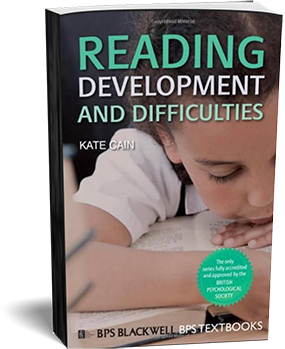
i. Reading Development and Difficulties
By Kate Cain
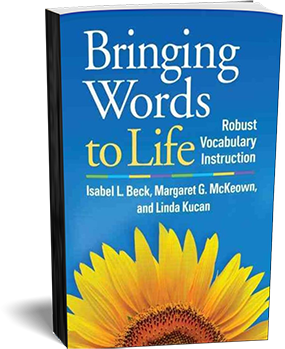
two. Bringing Words to Life: Robust Vocabulary Instruction
By Isabel L. Beck, Margaret G. McKeown, Linda Kucan
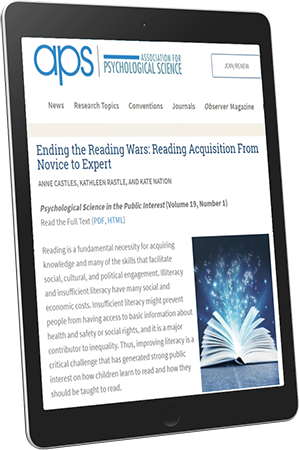
iii. Catastrophe the Reading Wars: Reading Acquisition From Novice to Expert.
Castles, A., Rastle, K., & Nation, Yard. (2018).
Psychological Scientific discipline in the Public Interest, nineteen(1), 5–51.
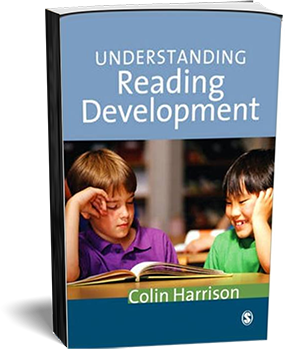
4. Understanding Reading Development
By Colin Harrison
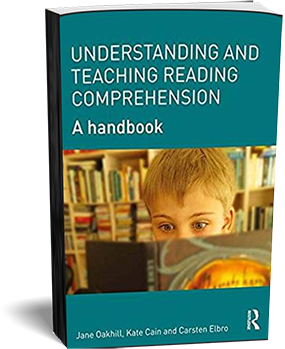
5. Understanding and Pedagogy Reading Comprehension: A handbook
By Jane Oakhill, Kate Cain and Carsten Elbro
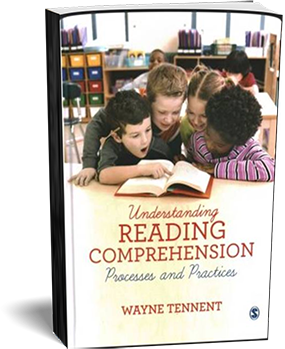
6. Understanding Reading Comprehension: Processes and Practices
By Wayne Tennent
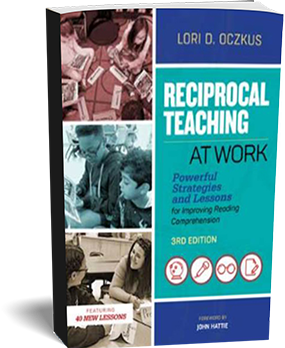
seven. Reciprocal Instruction at Work: Powerful Strategies and Lessons for Improving Reading Comprehension
3rd EditionBy Lori D. Oczkus
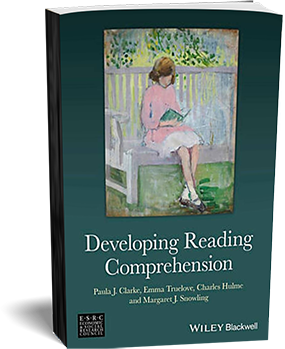
8. Developing Reading Comprehension
By Paula J. Clarke, Emma Truelove, Charles Hulme, Margaret J. Snowling
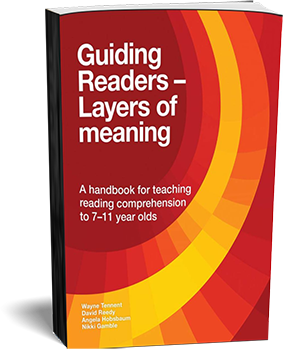
9. Guiding Readers - Layers of Pregnant: A handbook for instruction reading comprehension to 7-xi-year-olds
By Wayne Tennent, David Reedy, Angela Hobsbaum, Nikki Take a chance
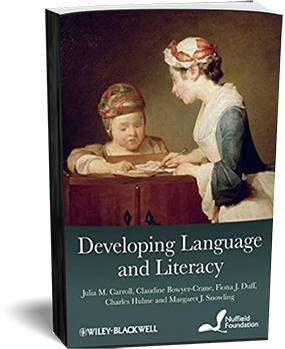
10. Developing Language and Literacy: Constructive Intervention in the Early Years
By Julia M. Carroll
More Reading?
Discover out how CEM data can assist students in your school
Source: https://www.cem.org/blog/10-essential-reads-to-improve-reading-comprehension
0 Response to "Best Way to Improve Reading Comprehension Lsat"
Post a Comment